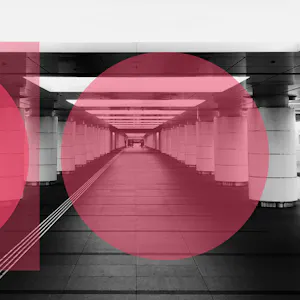Emerging threats

We support organisations striving to build a trustworthy, safe online environment where users can engage authentically in their communities.
Cross-sector corporatesWe support international government organisations and NGOs working to provide infrastructure or improve the capabilities, security and resilience of their nation.
International programmes and developmentWe support commercial organisations operating in a digital world, seeking to protect their reputation and prevent business disruption caused by cyber attacks and compliance breaches.
UK government and public sectorWe support UK government organisations responsible for safeguarding critical infrastructure, preserving public trust, and maintaining national security.



This week, Dr Anthony Fauci, the former Chief Medical Advisor to President Biden during the COVID-19 pandemic, gave testimony in front of a Congressional subcommittee. The hearing was full of partisan talking points and heated exchanges; and Fauci fought against allegations that he was responsible for a ‘cover up’ about a lab leak of COVID. The accusations levied against Dr Fauci, and his subsequent testimony, had me casting my mind back to 'pandemic times', when medical misinformation was rife. In those days, Dr Fauci and his family became targets of online harassment which developed into physical threats, abuse, and death threats. This behaviour was fuelled by conspiracy theorists through to elected officials who were all sharing COVID related misinformation.
The hearing is a great example of the lifecycle of a conspiracy and how it can go from being seeded online to being part of an official transcript of a Congressional hearing. Nicole Malliotakis, a Representative from New York, attempted to catch Fauci in a ‘gotcha’ moment when she asked how much money he had made from royalties from COVID vaccinations and medications (a popular conspiracy theory used to target Fauci). His answer was $122 from a patent of an antibody he had developed 25 years ago. Marjorie Taylor-Greene (MTG), a representative from Georgia and well-known conspiracy-theorist, told Fauci he belonged in prison, refused to refer to him as a ‘doctor’, claimed he abused puppies and later took to X (formerly Twitter) to blame Fauci for the death threats he was receiving. Dr Fauci stated on CNN after the hearing that MTG’s claims and behaviour helped to drive the threats and harassment made against him and his family.
So, while medical misinformation might not take up as much time in my workday as it once did, I see its legacy on almost a daily basis, especially in the US. There is a tendency in this line of work to always be on the lookout for the next biggest threat and, while that is valid, we mustn’t forget how the past can still inform the present. As the US 2024 Presidential election campaign has already begun, it will be interesting to see if new threads of conspiracies will develop or if old conspiracies will be built upon, just packaged in a different way.
More about Protection Group International's Digital Investigations
Our Digital Investigations Analysts combine modern exploitative technology with deep human analytical expertise that covers the social media platforms themselves and the behaviours and the intents of those who use them. Our experienced analyst team have a deep understanding of how various threat groups use social media and follow a three-pronged approach focused on content, behaviour and infrastructure to assess and substantiate threat landscapes.
Disclaimer: Protection Group International does not endorse any of the linked content.

The UK Ministry of Defence (MoD) has introduced the new Defence Cyber Certification (DCC) scheme: a security framework for suppliers in the defence supply chain, designed to enhance overall resilience against cyber threat.

Social engineering attacks are on the rise and small and medium enterprises (SMEs) are especially vulnerable targets, often having more limited security resources and less mature defences that are easier to bypass.

Last week, the WeProtect Global Alliance launched their flagship biennial report, the Global Threat Assessment 2025 (GTA25).